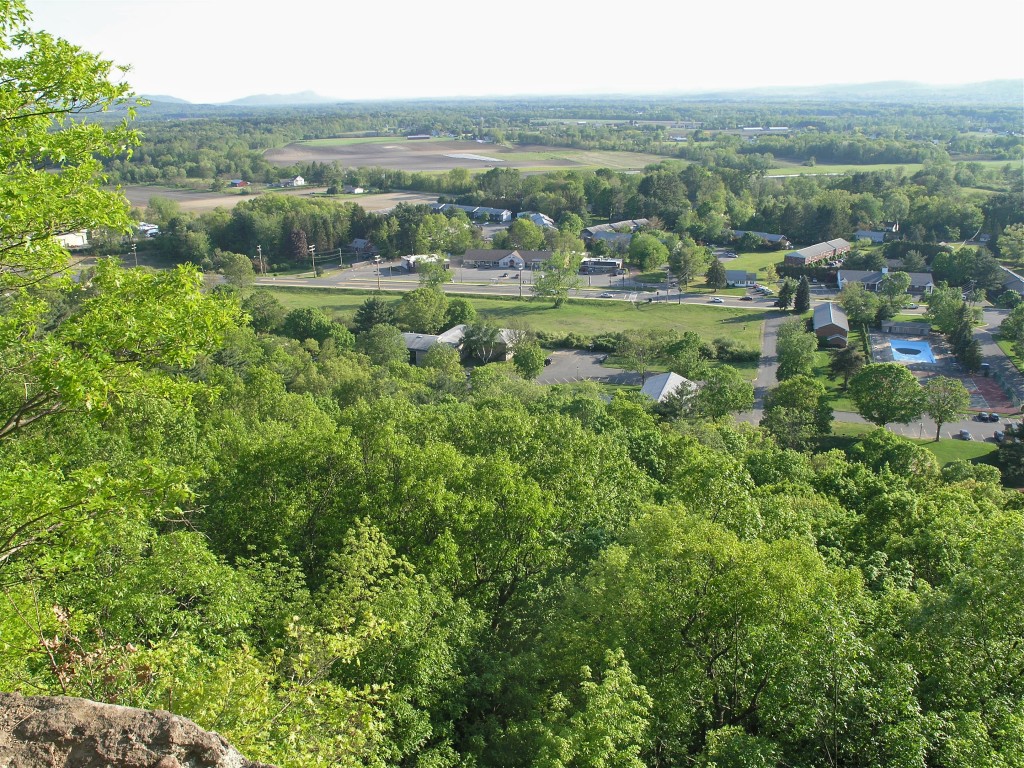Lily family.
Smooth Solomon’s Seal (Polygonatum biflorum)
Bonus picture: This is the top view of the woods where I photographed the Smooth and False Solomon’s Seal… looking down from this cliff into the treetops.

Found a large group of these along with a bunch of Smooth Solomon’s Seal in a patch of woods in Sunderland, Massachusetts, just north of Amherst. I think that’s close enough to call local, although I have not found such big groups in my usual haunts. It’s evidently called False because the leaf is similar to Solomon’s Seal, but true Solomon’s Seal has pendular blossoms. Lily family.
The Ojibwa tribe harvested the roots for eating, and cooked them in lye water overnight to remove the bitterness and neutralize their strong laxative qualities.
From Wikipedia: This plant can act as a strong laxative in sensitive individuals. A poultice made from the roots of this plant was used to treat sunburns. The roots were often dried and then smoked by several Eastern tribes as a treatment for hyperactivity in children and depression. Also used by Native Americans as a cough suppressant. (! that’s a useful plant!)
False Solomon’s Seal (Smilacina racemosa)
One of these is in bloom by the pond at Centennial as well. Red ripening to black fruit. The fruit is edible — black cherries! Lifespan can be 250 years. The bark was used for cough medicine and sedatives. The timber is red and used for furniture making. “A favorite drink in pioneer Appalachia was cherry bounce, in which rum or brandy was flavored with black cherry fruits.” Native to eastern North America. Family Rosaceae
Black Cherry, Mountain Black Cherry, Rum Cherry, Wild Black Cherry (Prunus serotina)